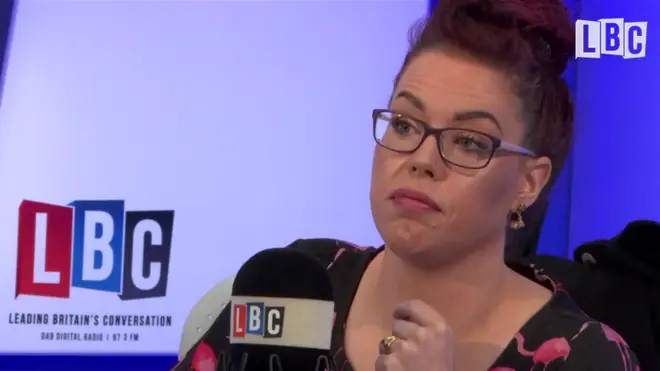
Ian Payne 4am - 7am
22 November 2017, 12:28 | Updated: 22 November 2017, 13:03
The Daily Mail attacked the government's former mental health tsar, reporting that she's called for teachers to be banned from calling children 'boys' or 'girls'. Here's what she really said.
The newspaper stated she had advised teachers not to refer to female pupils as either 'girls' or 'ladies' because it causes them to be 'constantly reminded of their gender'.
They wrote: "Only gender-neutral language should be used when addressing pupils, the Government's former mental health tsar Natasha Devon told headteachers of the country's leading girls' schools."
A social media storm followed, with people claiming it is "political correctness gone mad".

But being someone who does not trust what he reads in the Daily Mail, James O'Brien decided to ask Ms Devon herself what she actually said, and the answer is very different.
She said she used to call students at schools she worked at "ladies", but then one school asked her to stop.
Ms Devon explained that someone's sex is biological - male or female - but gender is an idea in peoples' heads and that was what she was getting across.
She told LBC: "We call them people or students for two reasons. Firstly because they had a couple of transgender people in the year, but similarly because they wanted to remind they that they are human beings.
"That they should aspire to be the best humans that they can be, not be constrained by the expectations associated with their gender. And I thought, what a good idea, so I started doing it.
"I told the conference I've started doing this and you might like to try it. But that went through the prism of the tabloid newspapers and came out that I'd ordered teachers to ban the words girls and boys in their school, which is palpably ludicrous."
James put it to her that, while she didn't say the words should be banned, it is true that she would prefer for them not to use the words.
Ms Devon responded: "For groups, not necessarily for individuals.
"If you know that somebody identifies as a girl, that they see that as an incredibly positive and empowering thing, then call them girl, by all means.
"But you have to know."